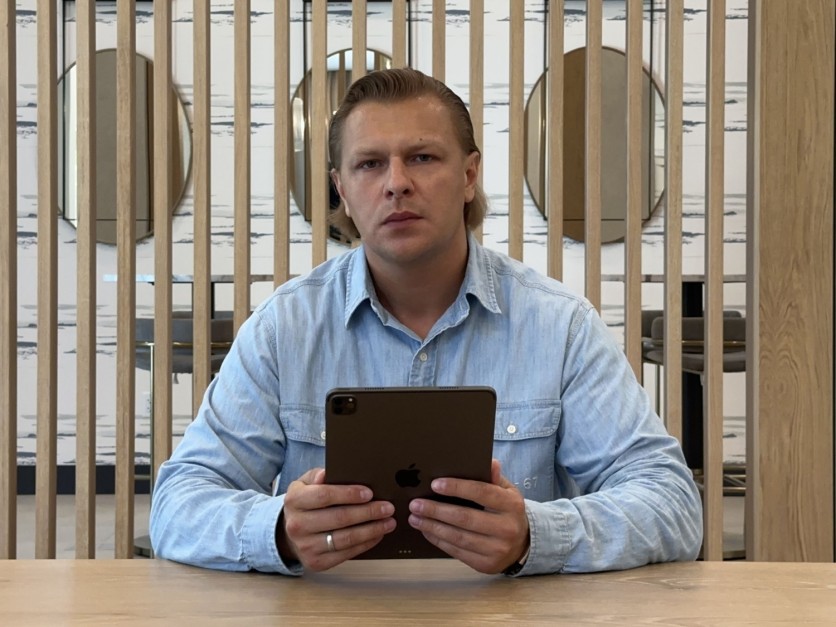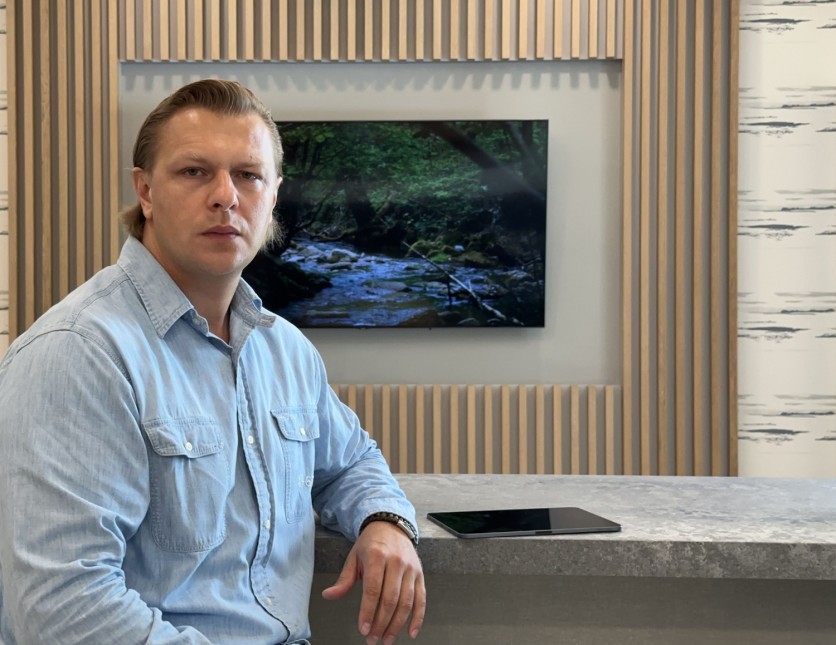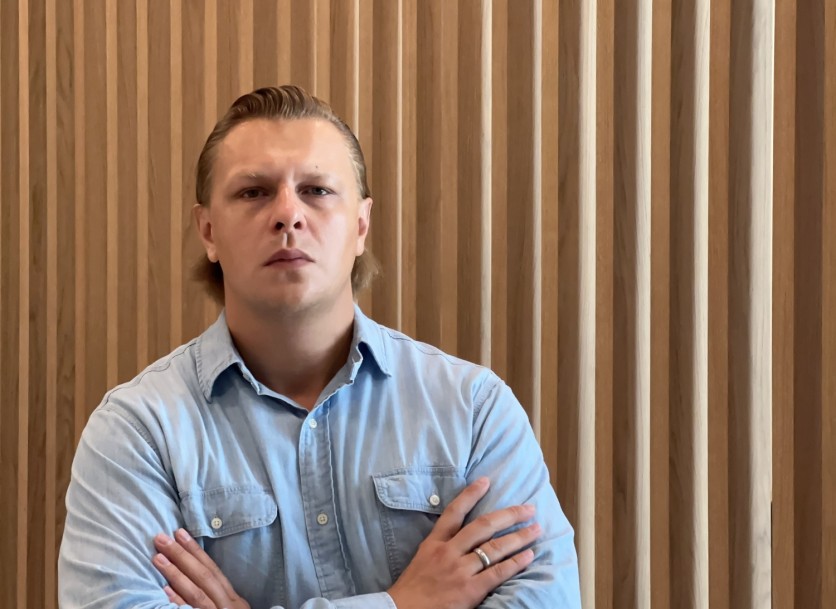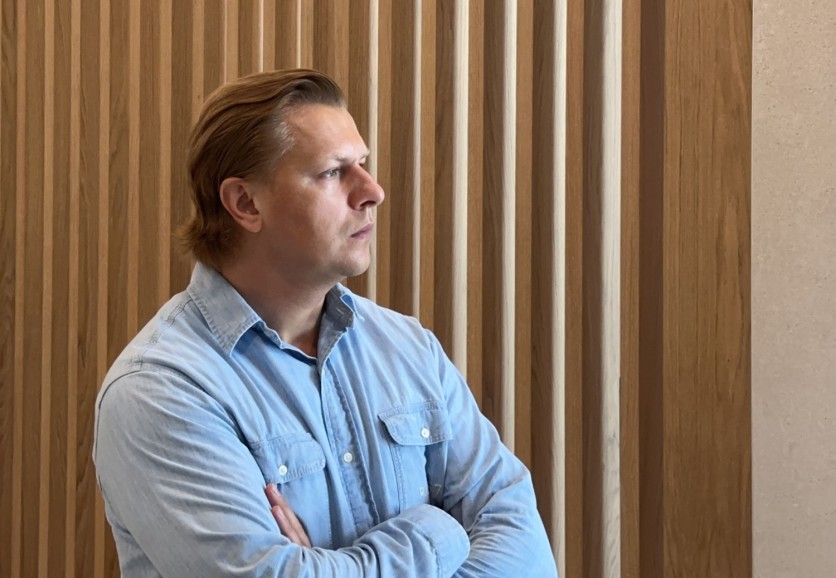
Andrei Zarubaika is a senior technical manager with extensive experience over 15 years in the information technology industry. Specializing in software development, system integrations, communications, highly available systems, and fintech, Andrei currently serves as the Senior Development Manager of Bank and ERP API Connectivity at Kyriba. With a strong track record of leading successful teams and achieving business growth through strategic planning and execution, Andrei brings valuable expertise in API connectivity, particularly within the banking and enterprise resource planning domains.
Noah: Today, you are such a highly specialized successful technical project manager. Where did your path begin? And what was your educational background prior to university?
Andrei: I was born and raised in a small village with a population of about 1000 people. I was a good student, particularly strong in math, but also excelled in other disciplines and received a gold medal. A gold medal is a prestigious recognition given to students who excel in multiple subjects, and achieving it was the result of years of dedication and hard work. It helped me build a strong foundation for my academic and professional pursuits, instilled in me a sense of discipline, motivation, and excellence, and provided me with the opportunity to move forward beyond village life.
Noah: How did you enter university, and which one did you attend?
Andrei: I entered Belarusian State University, which is the alma mater of all universities in Belarus. As a gold medalist, I had a single exam alongside international medalists at the national level in math. If you scored 9 or 10 points on the exam, you were admitted. I was fortunate enough to solve all the tasks, despite their complexity, and eventually enrolled in the Applied Mathematics and Computer Science faculty.

Noah: You received a promising quality education. What was your first job and professional responsibilities, and how did you begin your professional career in IT?
Andrei: During my second year of university, I needed money and decided to participate in a mentoring program sponsored by leading companies in the Belarusian market. It started as a stipend for part-time work, but by my third year, I was working part-time as a software engineer while continuing my education. Finally, I was Java Programmer certified in 2005 by Sun Company (currently owned by Oracle).
Noah: In the early stages of your active career, you worked as a developer for several years. When, how, and why did you become a manager?
Andrei: I realized that project progress was slow and could be improved. Eventually, I became a technical project manager and volunteered to take on a challenging project. In a few quarters, I turned it into the most profitable project, which resulted in bonuses for team members.
Noah: You have been working in the IT industry for more than 15 years and dealt with qualitatively and quantitatively wholly different projects. What is most of your experience?
Andrei: I started managing system integration projects, which I considered the most complex. Next, I was fortunate to work on a project that required high availability and served many millions of customers. It was the most challenging project for me and provided me with many opportunities to learn from different angles and perspectives. Over the years, I worked as an overall technical manager and managed many teams and other technical managers.
Noah: You have worked on large-scale projects where you supervised over 100 people and performed with global companies such as EPAM, TELUS, and Rakuten. How did you come to Fintech?
Andrei: I did pass the interview a year prior to joining the Fintech company but didn't accept an offer. During the year after I was learning and researching Fintech as it's made me some love. I decided to be keen on the Fintech industry and joined the company. I was totally surprised how tightly coupled with my previous experience starting from system integration, high availability, large number of customers, and mostly important and challenging - was required even higher stability than any projects before. So, I accepted the challenge.

Noah: You have worked with some of the largest telecommunication companies in the world, including TELUS Communications in Canada and Rakuten Mobile in Japan. As a Senior TPM responsible for end-to-end delivery of projects from initiation to production, you have coordinated with customers, program and project managers, technical managers, developers, BAs, and QAs to deliver recurrent business scope to production within critical timeframes. How did you manage this?
Andrei: Initially I joined small team of 10 people but a very complex high availability and continuous operations project for TELUS Canada. In the world of telecommunications, system availability is critical to ensuring that customers have access to reliable and high-quality services. To achieve this, systems are designed to operate with a high degree of availability, often measured as a percentage of uptime. For example, a system with 99.9% availability would be expected to have no more than 8.76 hours of downtime per year, or just over 43 minutes per month. Achieving this level of availability requires careful planning, design, and implementation of systems that are resilient, fault-tolerant, and scalable. This involves using technologies such as load balancing, redundancy, failover, and disaster recovery to ensure that systems can continue to operate even in the event of hardware or software failures.
Noah: Later, you started playing overall technical manager role for entire TELUS Communications project as part of the Netcracker Corporation team and finally joined second stage of Rakuten Mobile projects, when project was required, exponential grows in amount of customers. What were the main challenges?
Andrei: One of the key challenges that I faced was the need to ramp up and ramp down the team. At one point, the team was downsized from 35 people to 10 due to budget limitations. I played a crucial role in preserving the project experience during this period of two months and then reinvigorating the team's knowledge when the customer agreed to ramp up the team to 70 people over the next year, and eventually to 120 people over the next couple of years. My leadership and management skills were vital in ensuring that the team was adequately staffed and that the project goals were achieved despite the various obstacles. The same challenge I faced after joined Rakuten Mobile team, where it was required to build a team of 200 people.
Noah: Almost two years you were working on Connectivity legacy projects, which are extremely huge in terms of number of customers, number of supported systems, protocols and formats. How did you come to the current trending project?
Andrei: I was making a few iterations until we finally started transforming solutions into something new. New opportunity has appeared in the quality of Prof of The Concept (POC). I always dreamed about building a project from scratch. Having almost two years' experience in fintech legacy systems I immediately jumped at the opportunity to build an APIs microservices based project. Also, it was required to relocate to the US due to connections with customers and product owners. On top of that I've had a huge international experience working with USA, Canada, Japan and have had experience of building internationally distributed teams. It was a win-win for me.
Noah: Why do you think FintTech in the US is relevant, generates innovation, attracts investment, and has a lot of public attention through various public events and organizations?
Andrei: FintTech in the US is important because it keeps up with technology changes and meets customer expectations. It sparks innovation, attracts investment, and gets public attention. IT banking offers personalized services, improves efficiency, and reduces costs for banks. Collaboration and industry events contribute to its significance. FintTech also creates jobs and drives economic growth. Overall, these factors make FintTech relevant, innovative, attractive to investors, and attention worthy.
Noah: During the first year you've built a solid and mature MVP in the project. Your project is one of the leading projects in the company which has almost all levels of enterprise project. What have you achieved in the project?
Andrei: We've implemented project with all levels of maturity, including proper functional and performance testing, scalable, durable, which is easily to maintain and deploy. Initially, we focused on top 4 ERP systems in USA and implemented out-of-the-box integrations via APIs. Instead of waiting long time, customers are capable now to connect to Kyriba treasury and financial management solutions withing a week, withing a day. At the next step, we would like to implement self-service to allow customers to start using solutions without our involvement.

Noah: Currently, as Senior Development Manager for Bank and ERP API Connectivity at Kyriba Corp., you are engaged in promising projects that are of national importance for the entire US financial system. What are the next steps beyond the project?
Andrei: Considering Kyriba is a leading platform in treasury and financial management and due to the fact the most famous corporations are using Kyriba, I would like to use that opportunity to develop technologies and force adaptation of new for all Kyriba customers. I truly believe, at the same time they organically will improve technology for their customers and partners. A big dream is to improve the entire Fintech industry and make it real-time in the US. Being a part of the industry of Fintech APIs in treasury and financial management to further develop the industry, I aim to expand my knowledge and expertise in Fintech APIs and contribute to the growth and innovation within the industry.
Noah: Andrei, your ability to build and manage internationally distributed teams, combined with his technical expertise and project management skills, have made you a valuable asset to any organization you're working with. This was also highly appreciated at the Paytech Awards USA competition, which takes place in 2023. This is one of the most significant and highly specialized competitions in your field. Tell us how you got this victory.
Andrei: The answer to the question of how I was selected for the final is more to the judges, but I have a feeling that my success in PayTech Leadership can be attributed to a combination of dedication, innovation, and a relentless pursuit of excellence. Beyond my regular job duties of managing an existing connectivity project, I took on additional responsibilities that proved to be instrumental in achieving success. Firstly, I played a crucial role in improving stability in existing solutions servicing more than 2500 customers by providing proactive assistance in people, process, and technical management. Then participated in a modern Payment project from scratch, adopting the ISO20022 standard and successfully delivering the project in MVP quality. Introducing Fintech APIs using a micro-service-based approach further enabled connectivity for leading ERP systems, including major players like Amazon and Deloitte. The acceptance of SWIFT's ISO 20022 migration further validated the project's importance. As a result, Kyriba is now ready to provide real-time services based on APIs, prepared for SWIFT transformation, and serves major corporations seeking streamlined ERP-to-bank connectivity. These accomplishments were supported by evidence and results, as confirmed in a performance review for the year 2022 and available on the official Kyriba website, customer sites, and public media. My involvement in esteemed communities, such as the Leaders Excellence Club at Harvard Square, participation in the InfoQ community, and article contributions demonstrate my commitment to industry betterment. The integration of fintech APIs in financial management, as showcased in our projects, has the potential to greatly benefit the U.S. economy and various industries by enabling businesses, regardless of size, to access advanced financial tools and services, leading to increased efficiency, innovation, and risk management. It is this drive to constantly push the boundaries of what is possible in the industry that makes me a deserving finalist for the PayTech Leadership.
The PayTech Award is the international award. Initially was based in London. It was established in 2017 to celebrate and recognize the outstanding achievements of the use of technology in the finance and payment industry worldwide. Due to its success and demand for a US focused awards It is now expanded into the United States. For me, it was another challenge to prove my outstanding achievements and successes among hundreds of well-deserved professionals in the financial technology market in the United States. I successfully coped with it, being selected as a finalist.
ⓒ 2026 TECHTIMES.com All rights reserved. Do not reproduce without permission.




